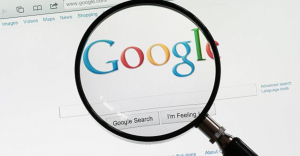Maryland became the first US state on Friday to collect tax on revenue
made from digital advertisements by internet giants like Facebook, Google and
Amazon, AFP reported. Legislators in the state senate mustered enough votes to
override a veto by Republican Governor Larry Hogan, who had sought to derail
the tax in Maryland. The tax is expected to be challenged in court. It was
estimated the tax could bring in $250 million to government coffers in its
first year.
“Maryland will become the first state in the country to make sure
big tech pays their fair share while making billions of dollars a year using
our personal data to sell digital ads,” state senator Bill Ferguson said
in a Facebook post supporting the bill.
Also Read | Demands to ban Donald Trump permanently from Facebook grow
Supporters of the tax, money from which is to be funneled into
education, touted its passage as a victory for schools that have gone
underfunded while internet firms have raked in fortunes from targeted ads.
The state is expected to take a tax bite of up to 10% from digital
advertising.
The tax targets companies that make over $100 million a year from
digital advertising, according to Ferguson.
Facebook and Google dominate the digital advertising market, bringing in
billions in revenue annually. E-commerce colossus Amazon has been scaling up
its digital ad business.
Also Read | Facebook tweaks news feed to reduce political content
Other states are expected to follow the same lines in collecting tax
form internet giants that have built financial empires on free services
supported by targeted advertising. Countries like Austria, Britain, France and
Spain are also working in this pursuit.
The administration of US President Joe Biden has expressed support for a
proposed global tax on digital giants such as Amazon, Facebook and Google.
The legality of the digital ads tax in Maryland was expected to be
challenged in court.
“Maryland now has the dubious honor of being the only state in the
country to have ever passed such a flawed tax,” said Internet Association
trade group vice president Robert Callahan.







